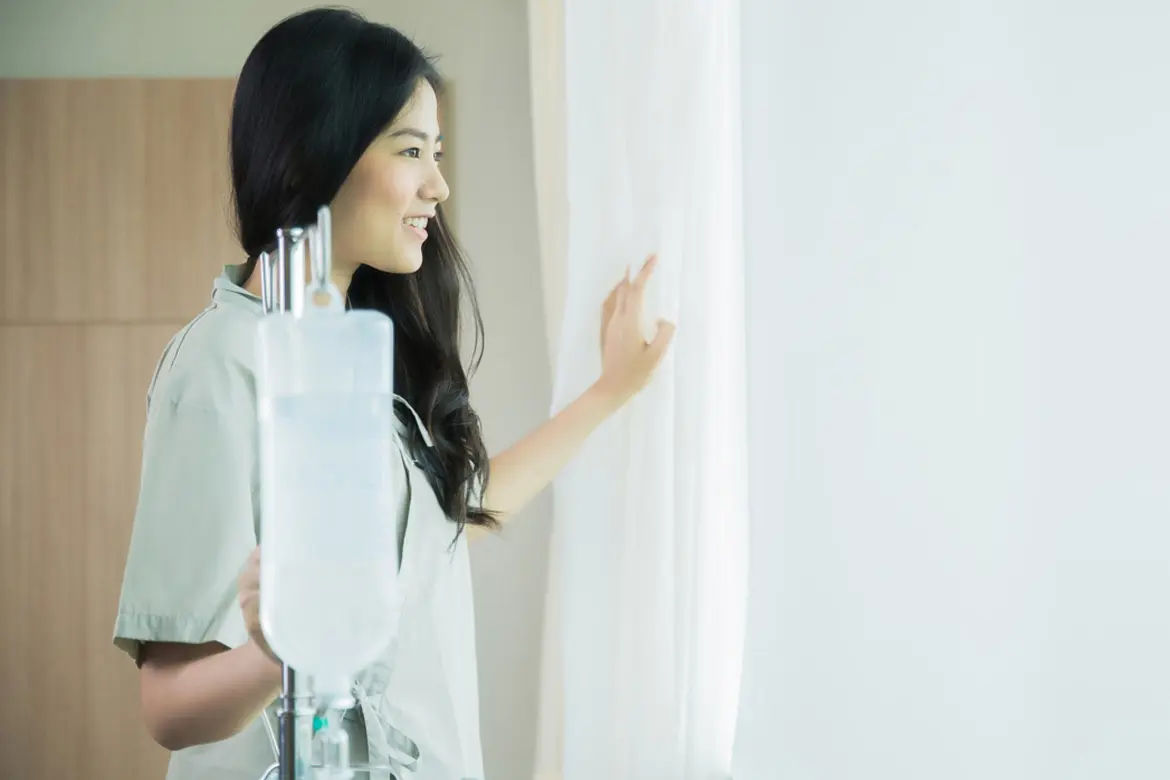-
-
Featured Care Areas


Source: Shutterstock
Know a Woman Above 40? Encourage Them to Take This Positive Step
Last updated: Sunday, October 9, 2016 | 8 min reading time
Your act of love today might just preserve their lives for many years down the road.
We all know and love some women in our lives – mothers, grandmothers, aunts, wives, daughters, friends and more. Yet, according to statistics, more of them are being claimed by the deadly 'C' word now more than before. According to the Singapore Cancer Registry report, breast cancer has increased threefold from 40 years ago. It is now the leading cancer and top cause of cancer deaths of women in Singapore. More women are being diagnosed with breast cancer each year.
The key to a higher rate of recovery and survival is early diagnosis and treatment of the disease. At the moment, the most effective method of early diagnosis of breast cancer is mammograms, an X-ray examination of the breasts on women who have yet to display any symptoms. However, despite rising breast cancer rates, the screening rates for breast cancer have plateaued.
Know any women in your life that you treasure and can't afford to lose? Here is what you can do to help them.
Who should you encourage to go for regular screenings?
As per the recommendation of the Ministry of Health (MOH), women above the age of 40 should get screened once a year, while women above the age of 50 should get screened once every two years, after discussing the potential benefits and risks with their doctors.
Mammograms are not recommended for younger women for a few reasons.
- Younger women are at lower risk of developing breast cancer
- Younger women have denser breasts, reducing the effectiveness of mammograms
- Studies have not found any reduction in numbers of cancer deaths in younger women who go for regular breast screenings
Why do they need to go for regular screenings?
Mammograms are essentially a screening procedure for early detection of breast cancer. The survival rates of breast cancer are high when it is detected early, and drops considerably as it progresses into the later stages.
When cancer is detected early, it is likely to be smaller and confined to one area. This means that there is a higher chance of cure and more available treatment options to choose from if required.
At this stage, the need for chemotherapy and mastectomy (removal of the breast) as part of the treatment plan is also lower.
However, when cancer is detected at a later stage, the cancer would have spread to other parts of the body. Treatment will be more difficult, and there will be less treatment options available. The 5-year survival rate also drops significantly.
The World Health Organization (WHO) estimates that mammograms reduce 25% of breast cancer deaths in women over the age of 50.
Common excuses they may make & what you can say
Despite the benefits, only about 30% of older women go for regular screenings. Below are some of the most common excuses given, and some truths you can respond with to encourage your loved ones to go.
- I am way too busy to go for mammograms.
The procedure itself takes just 3 – 5 minutes, and the session can be over in an hour. Besides, the service is highly available and accessible in Singapore, as it is provided across many locations. - Mammograms are too painful. I would rather not go.
To most women, mammograms are not painful, even though some might feel some sort of discomfort. Even if you do feel pain, be assured that it will last only for a brief moment. Besides, this temporary discomfort ultimately benefits you greatly. - I feel good and healthy. I am sure that I don't have cancer.
Cancer has been known to befall women who lead seemingly healthy lives. Even if you feel fine, go for a mammogram anyway in exchange for a peace of mind. - I don't have any symptoms. Why should I go for screening when there are no signs?
Breast cancer can often occur with no obvious symptoms at all. If you wait till symptoms show up before going for screening, you are reducing your opportunities of detecting cancer early. The earlier breast cancer is detected, the greater your chances are of beating it. - I am afraid. What if it turns out that I do have cancer?
Knowing that you have cancer is indeed scary, but take heart that you are discovering it early. The chance of a successful treatment outcome is much more promising.
Things you can do to help
In order to assuage their concern, there are a few things you can do. If you fit the bill of requiring a mammogram, perhaps you could schedule to go for one with them? If not, it would be ideal if you could find another female family, relative, or friend due to go for screening to go together. It might seem less frightening and less like a chore with company, and you could head out together to relax after the session. If you are of the opposite gender, perhaps schedule for a colonoscopy or some other screening test you are due for within the same period to show solidarity.
Another thing that you can do includes going through the process of mammograms with them such that they are aware and are able to prepare themselves mentally for the procedures that will be performed. It would be good if you are able to explain the rationale behind some steps of the procedure (eg. the breasts have to be compressed to spread out the breast tissue in order to capture a clearer scan). A good alternative might also be to arrange for such a session with their doctor.
A final note!
Bear in mind that these conversations are sensitive and might be offensive to some, seeing as it is such a personal matter. Do be empathetic and encouraging, but also exercise caution and take care to not overstep boundaries. Do not be surprised if your advice is not well-received.
Mammograms are vital to detect breast cancer early, and it is worrying to see the rates of breast cancer increase while scanning rates remain stagnant.
The rate of breast cancer recovery and survival could increase if more people were willing to take the time out to go for regular screening.
Breast cancer is claiming too many women beloved to us. In fact, some of us might personally know some women who have gone before their time. If you love the women in your life, love them through your actions and deed. Your act of love today might just preserve their lives in the years to come.
Mount Elizabeth Hospitals offer a one-stop solution for all your breast screening, assessment and diagnostic needs at the Mount Elizabeth Breast Care Centre.
Our dedicated team of surgeons, radiologists, nurses and allied health professionals work closely to provide comprehensive and personalised care to support you through your breast health journey.








